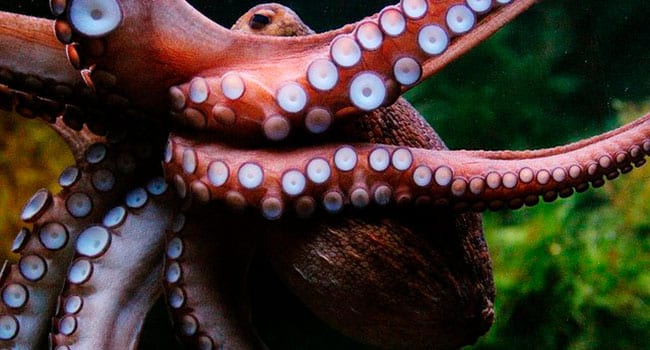 There are some amazing stories of pets finding their way home after long absences. But an octopus?
There are some amazing stories of pets finding their way home after long absences. But an octopus?
Octopi are intelligent, curious creatures. They are so intelligent that aquarium keepers use an enrichment manual to help ward off boredom for octopi in captivity. Aquarium octopi have toys like Mr. Potato Head and Lego, and some can solve puzzles that have a series of locks and keys.
A few years ago an octopus named Inky got himself caught up in a crayfish pot and was in bad shape when a New Zealand aquarium received him. But despite the aquarium’s tender care and advanced education program, it seems Inky had no intention of staying forever.
Whether Inky was more inquisitive and restless than other octopi, he was wily enough to escape. I can imagine him plotting his jailbreak like the fish in Finding Nemo, the tale of a clown fish that gets captured, put in a tank and makes it back to the ocean to be reunited with his father.
Inky’s opportunity for escape came one night a couple of months ago when someone failed to secure his tank properly. Under cover of darkness, he made his slippery exit from the tank, crept across the floor and squeezed his supple, rugby-ball-sized body into a six-inch floor drain. Good thing the drain led to the ocean.
We can explain Inky’s daring and successful escape using scientific knowledge and common sense. A number of factors coalesced in his favour. An unsecured tank, no keepers in sight, a wet floor, a drain leading to the ocean, an intelligent, curious creature whose body is perfect for Houdini manoeuvres converged to create perfect circumstances.
But I prefer to think of Inky’s escape in terms of mystery.
For Inky, the ocean was home. It was where he belonged. While the aquarium restored him to health, provided for his physical needs in a safe environment and stimulated his brain, Inky was restless. His tank mimicked the ocean but was not the ocean. Ultimately, enrichment activities with intriguing toys were a poor substitute for life on the reef; he was itching to leave the ivory tower of the aquarium and try out his new skills in the real world.
Perhaps something of a metaphysical nature, something that eludes our understanding, fuelled Inky’s desire to escape. Perhaps Inky had an intuition of divinity and his place in creation that compelled him to make a break for the ocean.
So while media reports of Inky’s escape focused on the intelligence of octopi, I saw allegory in the story about Inky.
Inky’s restlessness points to the restlessness of the human spirit, of which we are often oblivious. Like Inky, we are not satisfied with the place we inhabit. While crayfish pots draw us in and capture us, they cannot hold us for long. Nor can the finest tanks and toys stave off our dissatisfaction. They are merely distractions from our spiritual longing.
So as we attempt to transcend our traps and tanks, we spread our tentacles in search of drains that may lead nowhere. We sometimes wind up following the wrong gods home.
Louise McEwan has degrees in English and Theology. She has a background in education and faith formation.
The views, opinions and positions expressed by columnists and contributors are the author’s alone. They do not inherently or expressly reflect the views, opinions and/or positions of our publication.

